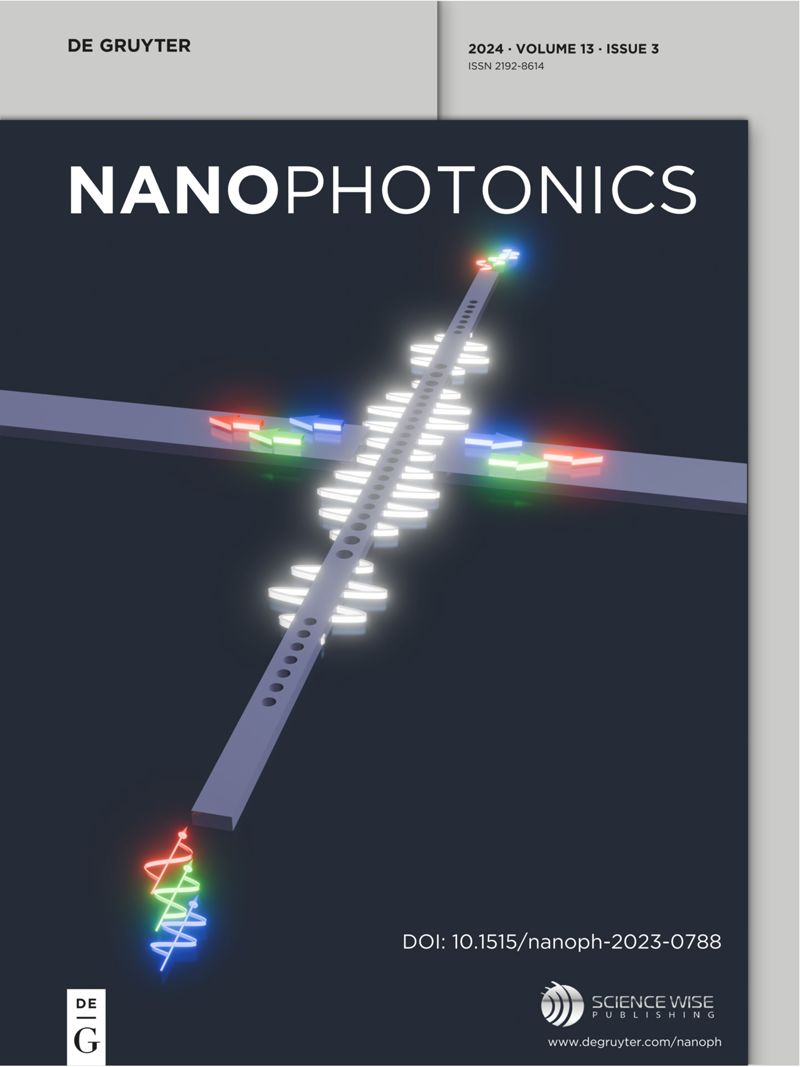Substrate-induced hybridization of plasmon modes in the composite nanostructure of nanodisk array/thin film for spectrum modulation
IF 6.5
2区 物理与天体物理
Q1 MATERIALS SCIENCE, MULTIDISCIPLINARY
引用次数: 0
Abstract
Hybridization coupling among plasmon modes is an effective approach to manipulate near-field properties thus optical spectral shapes of plasmonic nanostructures. Generally, mode hybridization coupling is achieved by modifying the topography and dimensions of nanostructures themselves, with few concerns about substrate-induced manipulation. Herein, we propose a composite nanostructure consisting of a gold (Au) nanodisk array and a thin Au film supported by a dielectric substrate. In this configuration, both the refractive index of the dielectric substrate and thin gold film’s thickness mediate the interaction of plasmon modes supported by upper and lower interfaces of the composite nanostructure, resulting in two hybridized plasmon modes. We systematically investigate the relationship between optical fields at the top surface of plasmon modes before and after the hybridization coupling. Specifically, the near-field amplitude at the top surface of the unhybridized modes is stronger than that of individual hybridized mode, and lower than the near-field summation of these two hybridized modes. This work not only provides a straightforward strategy for generating two plasmon modes in a nanostructure but also elucidates the variation of the optical field during the hybridization process, which is of crucial significance for applications, such as upconversion enhancement and multi-resonance sensing.用于频谱调制的纳米盘阵列/薄膜复合纳米结构中基底诱导的等离子体模式杂化
质子模式之间的杂化耦合是操纵质子纳米结构的近场特性和光学光谱形状的有效方法。一般来说,模式杂化耦合是通过改变纳米结构本身的形貌和尺寸来实现的,很少涉及基底引起的操作。在此,我们提出了一种复合纳米结构,由金(Au)纳米盘阵列和介电基底支撑的金薄膜组成。在这种结构中,电介质基底的折射率和金薄膜的厚度都会介导复合纳米结构上下界面支持的等离子体模式之间的相互作用,从而产生两种杂化等离子体模式。我们系统地研究了杂化耦合前后等离子体模式顶面光场之间的关系。具体来说,未杂化模式顶面的近场振幅强于单个杂化模式的近场振幅,低于这两个杂化模式的近场总和。这项工作不仅提供了在纳米结构中产生两个等离子体模式的直接策略,还阐明了杂化过程中光场的变化,这对上转换增强和多共振传感等应用具有重要意义。
本文章由计算机程序翻译,如有差异,请以英文原文为准。
求助全文
约1分钟内获得全文
求助全文
来源期刊

Nanophotonics
NANOSCIENCE & NANOTECHNOLOGY-MATERIALS SCIENCE, MULTIDISCIPLINARY
CiteScore
13.50
自引率
6.70%
发文量
358
审稿时长
7 weeks
期刊介绍:
Nanophotonics, published in collaboration with Sciencewise, is a prestigious journal that showcases recent international research results, notable advancements in the field, and innovative applications. It is regarded as one of the leading publications in the realm of nanophotonics and encompasses a range of article types including research articles, selectively invited reviews, letters, and perspectives.
The journal specifically delves into the study of photon interaction with nano-structures, such as carbon nano-tubes, nano metal particles, nano crystals, semiconductor nano dots, photonic crystals, tissue, and DNA. It offers comprehensive coverage of the most up-to-date discoveries, making it an essential resource for physicists, engineers, and material scientists.
 求助内容:
求助内容: 应助结果提醒方式:
应助结果提醒方式:


